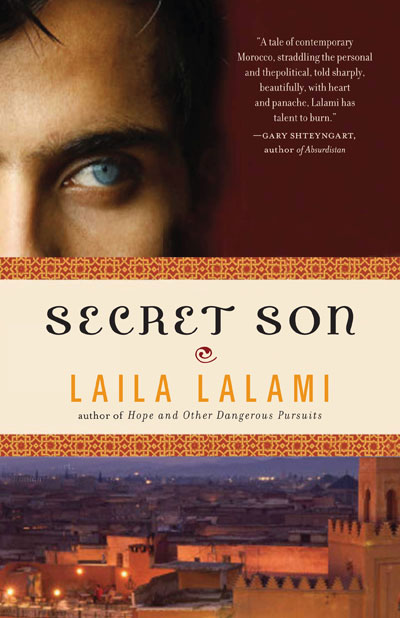News
The December 1 issue of the Nation includes a review by Siddhartha Deb of Elias Khoury’s most recent novel, Yalo. Here is the opening paragraph:
The fragments of the past never add up to a whole in Beirut. The city seems to communicate in images rather than in narrative, presenting a kaleidoscope of car bomb assassinations and refugee camps, Israeli warplanes and Hezbollah fighters, shards that whirl before our eyes without yielding much meaning. And these pieces are only from recent years, thrown up by a city that already holds in its subterranean layers the 1975-90 civil war, with its militias and massacres, and long before that the dissolution of the Ottoman Empire and colonial occupation by the French. When a writer attempts, then, to make Beirut the source of his work, one can understand why the first principle of his aesthetic is that a fragmented city demands a fragmented novel.
Aside from Yalo, Deb also covers Little Mountain and Gate of the Sun. (I reviewed Khoury for the Los Angeles Times a few months ago; if you’re curious about my take, you can click here.)
I noticed The World is What It Is—Patrick French’s biography of V.S. Naipaul—last week at the bookstore, but I wasn’t particularly in the mood to read 500 pages about someone as unpleasant as Naipaul. Dwight Garner’s review of the book makes me want to reconsider:
Well, the reader thinks, here we go: Mr. French’s 550-page biography will be a long string of bummers, a forced march through the life of a startlingly original writer with an ugly, remote personality.
The good news is that Mr. French, a young British journalist, is certainly unafraid to face unpleasant facts about his subject. But the better news about “The World Is What It Is” is this: it’s one of the sprightliest, most gripping, most intellectually curious and, well, funniest biographies of a living writer (Mr. Naipaul is 76) to come along in years.
Mr. French is a relative rarity among biographers, a real writer, and at his best he sounds like a combination of that wily bohemian Geoff Dyer and that wittily matter-of-factual cyborg Michael Kinsley.
Even the cameos in Mr. French’s biography are crazily vivid. Here is his hole-in-one description of the editor Francis Wyndham: “Popular, gentle, solitary and eccentric, Wyndham lived with his mother, wore heavy glasses and high-waisted trousers, gave off random murmurs and squeaks and moved with an amphibian gait.”
You can read it all here. (more…)
Even though I had a formidable migraine and could hardly stand to read by the lamplight, the opening to Mark Danner’s new piece in the latest issue of the New York Review of Books completely drew me in:
Scandal is our growth industry. Revelation of wrongdoing leads not to definitive investigation, punishment, and expiation but to more scandal. Permanent scandal. Frozen scandal. The weapons of mass destruction that turned out not to exist. The torture of detainees who remain forever detained. The firing of prosecutors which is forever investigated. These and other frozen scandals metastasize, ramify, self-replicate, clogging the cable news shows and the blogosphere and the bookstores. The titillating story that never ends, the pundit gabfest that never ceases, the gift that never stops giving: what is indestructible, irresolvable, unexpiatable is too valuable not to be made into a source of profit. Scandal, unpurged and unresolved, transcends political reality to become commercial fact.
We remember, many of us, a different time. However cynically we look to our political past, it is there that we find our political Eden: Vietnam and its domestic denouement, Watergate—the climax of a different time of scandal that ended a war and brought down a president. In retrospect those events unfold with the clear logic of utopian dream. First, revelation: intrepid journalists exposing the gaudy, interlocking crimes of the Nixon administration. Then, investigation: not just by the press—for that was but precursor, the necessary condition—but by Congress and the courts. Investigation, that is, by the polity, working through its institutions to construct a story of grim truth that citizens can in common accept. And finally expiation: the handing down of sentences, the politicians in shackles led off to jail, the orgy of public repentance. The exorcism of shame, the purging of the political system, and the return to a state, however imperfect, of societal grace.
It is a myth, of course, but a lovely one.
You see what I mean? You can read the whole piece here.
I will be reading from Secret Son tomorrow at UCLA. Here are the details:
November 15, 2008
2:00 PM
Fez: Crossroads of Knowledge Conference
Faculty Center, California Room
University of California, Los Angeles
Los Angeles, California
The event is free and open to the public. If you’re in town, do come by and say hello.
I went to New York earlier this week for a panel discussion and a few meetings. The galleys for my novel, Secret Son, had just been delivered to my publisher, so I got to hold one in my hands for the first time. Here is what the cover art looks like:

The book will be out on April 21.
